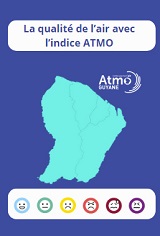Blada.com
mercredi 17 décembre
Boîtes aux lettres
Courrier des lecteurs
Petites annonces
Emploi / Formation
Covoiturage
Infos citoyennes
Infos citoyennes
19/09/23
Lancement d'un programme d’ETP pour les personnes souffrant de troubles psychiques
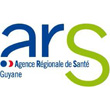 Début avril, la plateforme de rétablissement du groupe SOS Solidarité a lancé son programme d’éducation thérapeutique du patient, à destination des personnes en situation de handicap psychique. Pendant deux mois, les volontaires participent à deux ateliers par semaine, avec des ergothérapeutes, médecins, infirmiers et psychologues. L’objectif est de les aider à gagner en autonomie dans leur vie quotidienne, à anticiper et gérer leurs symptômes.
Début avril, la plateforme de rétablissement du groupe SOS Solidarité a lancé son programme d’éducation thérapeutique du patient, à destination des personnes en situation de handicap psychique. Pendant deux mois, les volontaires participent à deux ateliers par semaine, avec des ergothérapeutes, médecins, infirmiers et psychologues. L’objectif est de les aider à gagner en autonomie dans leur vie quotidienne, à anticiper et gérer leurs symptômes.

Pour Lina, les troubles sont apparus pendant ses études à l’université. Charge de travail, maternité, difficultés économiques, consommation de stupéfiants… Elle a perdu pied. A eu de plus en plus de difficultés à gérer son quotidien. Le diagnostic de schizophrénie est arrivé ensuite. Puis la prise en charge, notamment à l’hôpital. En avril et mai, elle a participé à la première session du programme d’éducation thérapeutique du patient (ETP) proposé par la plateforme de rétablissement du groupe SOS, à Cayenne.
La plateforme de rétablissement, créée en 2019, « accompagne des personnes concernées par les troubles psychiques. Les missions principales sont de les accompagner au quotidien, dans leur projet de vie, vers l’emploi, vers la vie quotidienne, vers le logement. Il s’agit d’un accompagnement pluridisciplinaire avec des psychologues, ergothérapeutes, des travailleurs sociaux », explique Aline Daniel, ergothérapeute et coordinatrice du programme d’ETP. Ce programme était, pour elle, la suite logique du travail déjà réalisé avec les usagers.
Pendant deux mois, les participants vont suivre deux ateliers par semaine, sur la base du volontariat et après deux entretiens pour évaluer leurs compétences, leurs attentes, leurs besoins et choisir les ateliers. Un compte rendu de leur participation sera envoyé à leur psychiatre ou médecin. Une évaluation est réalisée trois mois après la fin du programme.
Les ateliers visent plusieurs objectifs :
- Aider les participants à mieux comprendre leur maladie : la représentation qu’ils en ont, les connaissances médicales, les traitements, les partenaires en santé mentale du territoire…
- Leur permettre d’identifier leurs forces et leurs limites dans leur capacité à agir, par exemple en les aidant à réfléchir aux moyens de compenser leurs limites, lors d’entretiens à domicile ;
- Les accompagner pour qu’ils prennent conscience de leur capacité à se rétablir, c’est-à-dire à acquérir ou maintenir les compétences dont ils ont besoin pour gérer au mieux leur vie avec une maladie chronique ;
- Les aider à améliorer leur bien-être au quotidien : identifier ses activités du quotidien et celles qui font diminuer le risque de crise, découverte d’activité favorisant le bien-être telles la sophrologie, la musicothérapie, le sport, la cuisine.
En ce mardi de début mai, Lina, Jean-Luc, Kévin et Ludovic, souffrant tous de schizophrénie, suivent l’atelier « Analyser mon bien-être ». Aline Daniel et sa collègue infirmière Bénédicte Coignard les questionnent sur les activités qui, dans leur quotidien, leur procurent du bien-être et celles qui font le contraire. Certains citent le ménage, la cuisine, le sport… Les animateurs du programme les aideront, les jours suivants, à organiser leurs journées, à trouver des routines ou des réflexes pour éviter les crises.
Jean-Luc, dont les troubles ont été repérés alors qu’il vivait dans l’Hexagone, avant de se réinstaller en Guyane, constate que « vis-à-vis de la maladie, quand on a une activité, on a moins de pression, on se libère. » « Malgré la médication, certains symptômes persistent, rappelle Aline Daniel. Il s’agit donc de pouvoir vivre comme la personne l’entend, de pouvoir travailler, avoir un logement, réussir à satisfaire ses attentes malgré les symptômes qui persistent. La réhabilitation psychosociale a un impact sur la capacité des personnes à gérer leur maladie au quotidien, à éviter les réhospitalisations et les états de crise. »
Parmi les quatre participants, plusieurs ont une activité professionnelle. En entreprise adaptée ou non. Certains ont leur propre logement. En juin et juillet, une seconde session a eu lieu, avec quatre autres usagers. La prochaine est prévue à compter du 3 octobre. Déjà suivis par la plateforme de rétablissement, ils ont été orientés vers ce programme d’ETP soit par la plateforme elle-même, mais aussi par la plateforme des aidants de l’association l’Ebène, la communauté thérapeutique (groupe SOS Solidarité), l’Epnak ou la groupe d’entraide mutuelle (GEM). Ludovic, un des participants à la première session, se disait satisfait de ce programme : « Cela m’aide à repérer les moments de crise, à organiser mes journées autour notamment d’activité qui me font du bien comme la cuisine, à comprendre les troubles et à connaître ceux qui peuvent m’aider. »
 At the beginning of April, the recovery platform of the SOS Solidarité group launched its therapeutic patient education program, aimed at people with mental disabilities. For two months, volunteers participate in two workshops per week, with occupational therapists, doctors, nurses and psychologists. The objective is to help them gain autonomy in their daily life, and to anticipate and manage their symptoms.
At the beginning of April, the recovery platform of the SOS Solidarité group launched its therapeutic patient education program, aimed at people with mental disabilities. For two months, volunteers participate in two workshops per week, with occupational therapists, doctors, nurses and psychologists. The objective is to help them gain autonomy in their daily life, and to anticipate and manage their symptoms.

For Lina, the troubles began during her studies at university. Workload, motherhood, economic difficulties, drug consumption... She lost her ground. Had more and more difficulty managing his daily life. The diagnosis of schizophrenia came next. Then the treatment, particularly in hospital. In April and May, she participated in the first session of the therapeutic patient education program (ETP) offered by the SOS group recovery platform, in Cayenne.
The recovery platform, created in 2019, “supports people affected by mental disorders. The main missions are to support them on a daily basis, in their life project, towards employment, towards daily life, towards housing. This is multidisciplinary support with psychologists, occupational therapists, social workers,” explains Aline Daniel, occupational therapist and coordinator of the ETP program. This program was, for her, the logical continuation of the work already carried out with users.
For two months, participants will follow two workshops per week, on a voluntary basis and after two interviews to assess their skills, their expectations, their needs and choose the workshops. A report of their participation will be sent to their psychiatrist or doctor. An evaluation is carried out three months after the end of the program.
The workshops have several objectives:
- Help participants better understand their illness: their representation of it, medical knowledge, treatments, local mental health partners, etc.
- Allow them to identify their strengths and limitations in their ability to act, for example by helping them think about ways to compensate for their limitations, during in-home interviews; ;
- Support them so that they become aware of their capacity to recover, that is to say, to acquire or maintain the skills they need to best manage their life with a chronic illness;
- Help them improve their daily well-being: identify their daily activities and those that reduce the risk of crisis, discovery of activities promoting well-being such as sophrology, music therapy, sport, cooking.
On this Tuesday in early May, Lina, Jean-Luc, Kévin and Ludovic, all suffering from schizophrenia, attended the “Analyze my well-being” workshop. Aline Daniel and her nurse colleague Bénédicte Coignard question them about the activities which, in their daily life, give them well-being and those which do the opposite. Some cite cleaning, cooking, sport… The program facilitators will help them, in the following days, to organize their days, to find routines or reflexes to avoid crises.
Jean-Luc, whose problems were noticed while he was living in France, before resettling in Guyana, notes that “with respect to illness, when we have an activity, we have less pressure, we free ourselves.” “Despite medication, certain symptoms persist,” recalls Aline Daniel. It is therefore a question of being able to live as the person wishes, of being able to work, have housing, succeed in meeting one's expectations despite the symptoms which persist. Psychosocial rehabilitation has an impact on the ability of people to manage their illness on a daily basis, to avoid rehospitalizations and crisis states. »
Among the four participants, several have a professional activity. In a suitable company or not. Some have their own accommodation. In June and July, a second session took place, with four other users. The next one is scheduled for October 3. Already followed by the recovery platform, they were directed towards this ETP program either by the platform itself, but also by the caregiver platform of the Ebène association, the therapeutic community (SOS Solidarité group), the Epnak or the mutual aid group (GEM). Ludovic, one of the participants in the first session, said he was satisfied with this program: “It helps me to identify moments of crisis, to organize my days around activities that do me good such as cooking, to understand the problems and to know those who can help me. »
Raccourcis

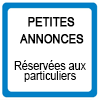
passer une petite annonce
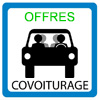
passer une annonce de covoiturage
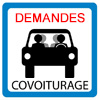
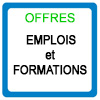
passer une annonce d’emploi
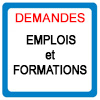
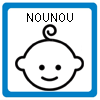
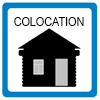
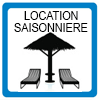
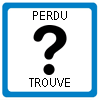
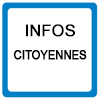
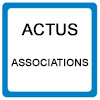
associations, postez vos actualités
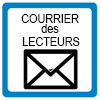
participez au courrier des lecteurs
La Guyane c’est ici
La qualité de l’Air avec
ATMO
Photothèque

Lancements 2022
Vol 259 Ariane 5



